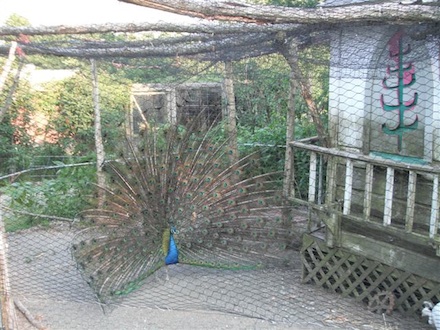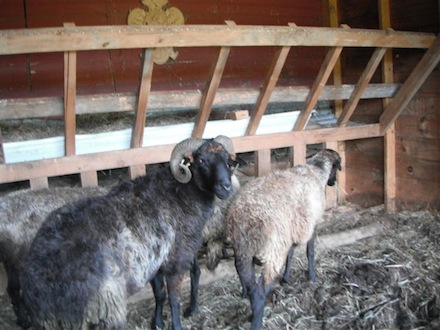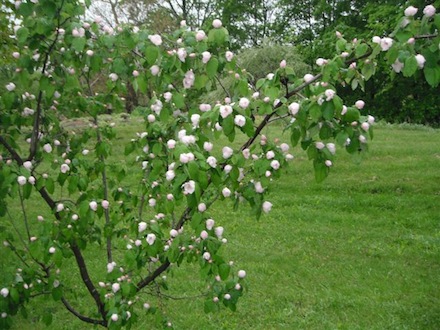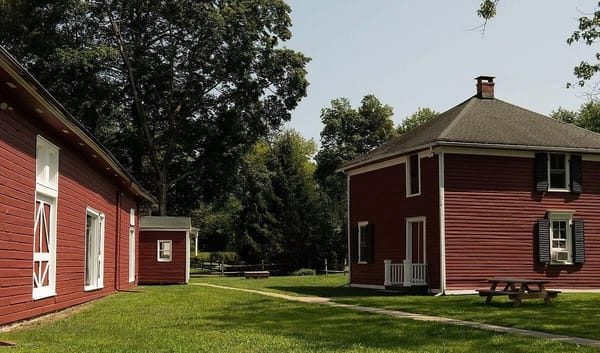AgriCulture bloggers Peter Davies and Mark Scherzer are the owners of Turkana Farms in Germantown, NY. This week Peter writes.

Anyone who denies that we are experiencing extreme climate change should either speak to our farm animals (as I have demonstrated in past columns, our animals can talk) or, better yet, work here at Turkana Farms for a summer—or , for that matter, winter. Amazingly, there are certain people in this country who continue to deny the obvious reality, but they are mostly politicians usually who place political advantage over not only science but common sense. Our peacock, Troilus, for instance, could tell these opportunistic doubters that, for reasons he fails to fully understand, he began displaying for Cressida three weeks earlier than usual this season and, equally surprising, packed up his gorgeous feather display and molted three weeks earlier as well. Our ram, Suleyman, also could (if he felt like talking) do some educating. Ordinarily he moves into the breeding mode on the first cool night that we have, usually late August, and continues to breed when the temperature is under 55 degrees. But as he would attest, if asked, he began feeling really sexy about three weeks ago when we had a momentary dip in temperature from the unbearable heat we have been enduring all summer.

I will attest to his assertions, since one morning at the end of chores, I was shocked to see Suleyman in hot pursuit of one of the ewes as he purposefully trotted out of the barn, and my fears were corroborated when I witnessed him exhibiting his mating behavior – that is, arching his head back and curling back his upper lip to reveal his teeth in a kind of grotesque “come hither” smile. So far I have not witnessed the ewes squatting and urinating in front of him, the usual lady sheep come-on, but who knows what they are up to at night. This early breeding is not something we welcome, since with a five-month gestation period, the birthing of our lambs is now likely to happen in December, not the ideal time – given the usual weather conditions – for birthing lambs. And not the ideal time for other reasons, one being that our ewes still need to recover their former weights after a spring and summer of birthing and suckling their lambs. We have since tried to go against nature’s new clock by separating Suleyman and the other ramlings from the ewes, but Suleyman very quickly demonstrated our karakul sheep’s incredible jumping skills by vaulting the fence to rejoin the ewes. Nature, even in its changing moods, will not be denied. Even our cicadas (you may know them as katydids) which are, of course, not livestock, but residents of the farm nevertheless, could with their tiny brains educate some of these doubting politicos. They would point out that usually their metallic chatter of call and response begins in late August or early September, but this summer they unexpectedly began to perform their raucous concert sometime in early July. A late summer/early fall sound seems to have moved up to mid-summer.

If plants could talk they would also have a tale to tell. (Prince Charles speaks to his plants regularly, apparently, but has never revealed whether they answer back.) Our apple, pear, plum, peach, and Asian pear trees would ask, if approached, how they are expected to bear fruit if an incredibly early August-like heat spell in April, which causes them to burst into flower, is followed immediately by a severe frost (which is exactly what happened this spring). Of all our fruit trees, only the quince, above, has managed to bear fruit. With the apple crop in our region down by about half this season, there would be a lot of angry apple tree chatter to fill the ears of the willfully obtuse doubters of the right – were they in the mood to listen, that is. While our vegetables would admit that they have not experienced the dire conditions of their fellow-vegetables in the Midwest, South, and West, they would ask how they are expected to grow and flourish in these new severe weather conditions. They would complain that last summer they had to endure a constant deluge of rain, that literally, in some cases drowned them, and such a dearth of sun, that they could not flourish, followed year by this summer’s serious rainfall deficit, accompanied by record-breaking heat, and a sun that seems to grow in intensity.

Even the decorative part of the farm would have something to say. Our magnolia trees would complain that, for the first time they can remember, all of their spring blossoms were turned a sodden black by a killing frost. Our phlox, golden globes, and Japanese chrysanthemums, to name a few perennials, would point out that they were shocked to find themselves blooming a good three weeks earlier than usual. “What on earth will we look like come fall?” they are probably wondering. If our plants and animals could sing they would probably unanimously choose to do a rousing rendition of Dylan’s The Times They Are a Changing. And Mark (rather off-key) and I (in perfect pitch) would enthusiastically join right in. —Peter Davies








